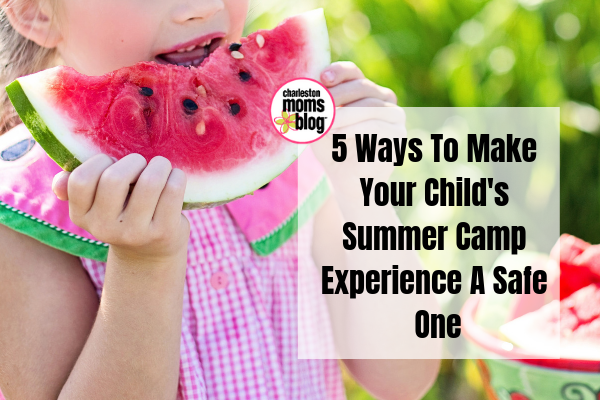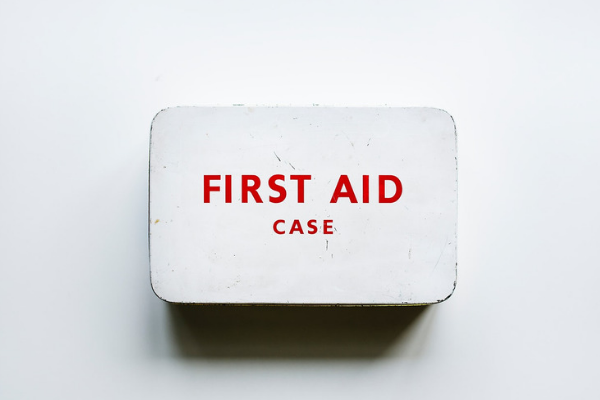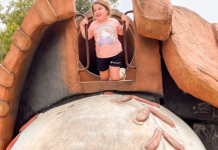Summer is on its way and that means many kids (and parents) in the Lowcountry are looking forward to summer camp. Summer camp is a great way for children to explore interests, make new friends, practice independence and make lasting memories. To the parents’ benefit, it’s a great way to keep kids from becoming completely feral during the unstructured summer months.
Now is the time for parents to begin researching programs that are safe, engaging and fun. With new environments and experiences comes the challenge of safeguarding and preparing your child mentally and physically for summer camp. So, what do you need to consider before camp kicks off?
Shana C Bondo, a board-certified pediatrician and medical director of After Hours Care at MUSC Children’s Health, offers a great checklist for parents to ensure their children are prepared for a variety of summer camp adventures.

5 ways to make your child’s summer camp experience a safe one
- Medical History and Physicals
Depending on the type of camp you’ve chosen for your child, a physical may be necessary. Be sure to check that your child is up-to-date on immunizations, that you have an accurate record of allergies or medications, and have had any physical limitations examined that may affect their ability to participate in activities.
“Many times, the child does not need an additional physical if they are up-to-date on their immunizations, and are keeping up with their well checks,” Dr. Bondo said. “The child’s primary care pediatrician can complete the form, sometimes through a phone call. They will make sure that the shots are up-to-date and assure that there are no physical concerns or worries that may limit the child’s participation in certain activities.”
MUSC After Hours Care Centers can accommodate sports and routine physicals. MUSC Children’s Health offers three After Hours Care locations in Mount Pleasant, North Charleston, and Summerville.
- Safety
Each season in the Lowcountry brings its unique challenges. The biggest challenge during the summer months are the hot, hotter, and surface-of-the-sun temperatures. Be sure your child is protected and comfortable by dressing them accordingly, using plenty of sunscreen, and keeping them hydrated.
Dr. Bondo recommends packing plenty of fluids for day camp attendees and applying sunscreen thirty minutes to an hour before the child leaves for camp. She encourages parents to pack an extra tube of sunscreen so the child can reapply throughout the day.
- Activities
Be sure you have a thorough understanding of the type of activities at your chosen camp. Checking the daily schedule, safety and health guidelines, medical aid availability and emergency plans will help alleviate any uncertainty for parents as well as help prepare children for what they can expect as they spend time in a new environment.
“Make sure they have a snack, lunch, a large water bottle and sometimes it’s just sitting down with your child and having a conversation and telling them how important it is that they drink the water and refill the bottle throughout the day,” she said. “Let them know how important it is to refuel their body.”
- Maturity
Every child matures in their own unique way. As a parent, it’s your role to help screen your child to determine if they’re ready for an independent experience like summer camp.
If you plan to send your child to overnight camps, here are a few questions that are helpful in determining your child’s preparedness: Is your child able to sleep at a friend’s house or grandparent’s house without too many missed steps? Can the child bathe themselves and dress themselves? Have they reached that level of independence to spend a week in a camp setting?
Dr. Bondo recommends having a transparent and honest conversation with your child covering situations that may arise as they spend time away from home. Ask if they want to meet new people or would they prefer to sign up with a buddy. If they feel sad on some particular night, what are some of the ideas you can come up with now to troubleshoot that so the child has an action plan in their head? Find out if they are going to be able to make phone calls or what kind of contact you can have with them while they are away.
- Special Needs
If your child has special medical needs or requirements be sure you provide clear, accurate and up-to-date medical information. If your child has a condition like asthma, diabetes or allergies be sure that both the camp staff and the child are able to administer daily care and can recognize warning signs and take proper steps in the case of an emergency.
Dr. Bondo recommends determining if the camp has accreditation and if not, parents should conduct their own research to determine what safety measures exist. Are camp workers screened for criminal or high-risk behaviors? What nutrition and housing standards are in place? Is there an action plan for emergencies?
Taking appropriate precautions ahead of time will help alleviate some of the uncertainty a parent or child may have about summer camp and will shift the focus to what summer camp should be about: FUN!
Connect with MUSC Children’s Health
To learn more about sending a child off to camp or about the MUSC Children’s Health After Hours Care locations, visit musckids.org/locations
Call: 843-876-2222
Follow on Facebook, Twitter, Instagram,
Check out the MUSC blog!















Great information!
Especially the tip about ensuring they know how important it is to refuel. I know my child gets so engrossed in playing and activities that he forgets to drink, or is so involved in what he’s doing throughout the day that he’s ‘not hungry’ because he doesn’t want to take a break or miss anything!
Comments are closed.